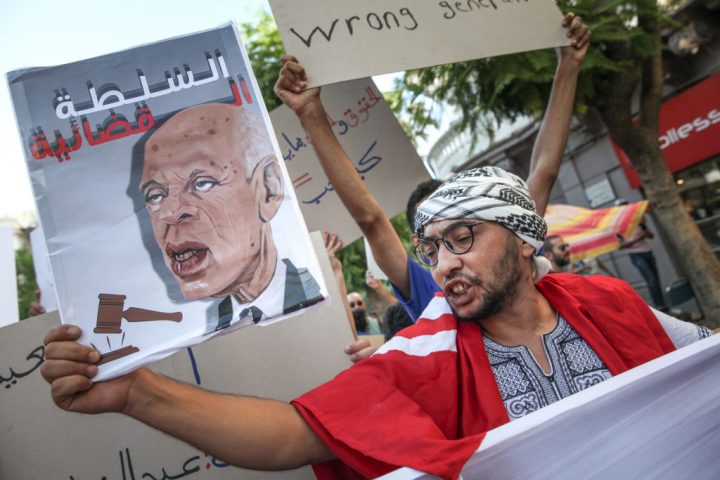Tunisia has become a police state. This has not happened overnight. But it is still a shocking reversal in democratic development.
This is the country whose former dictator was overthrown in a few days in 2011. His was the first scalp claimed by the Arab revolutions of that year. But where the tyrant Zine El Abidine Ben Ali once went (apart from running away in disgrace), his latest successor, Kais Saied, longs to follow.
A few stories converged over the past week in Tunisia, resulting in major protests over the weekend. Protesting without presidential approval is formally banned in the country, and most of the country’s opposition leaders are now in jail. So to protest for their release takes twofold courage.
All of this has come to a head in the past month or so, but Saied has been a liability for years
The spark for these demonstrations came last week, when opposition leaders including the old campaigner Said Ferjani (a former twenty-year political exile in Britain) were arrested. Not

Britain’s best politics newsletters
You get two free articles each week when you sign up to The Spectator’s emails.
Already a subscriber? Log in






Comments
Join the debate, free for a month
Be part of the conversation with other Spectator readers by getting your first month free.
UNLOCK ACCESS Try a month freeAlready a subscriber? Log in